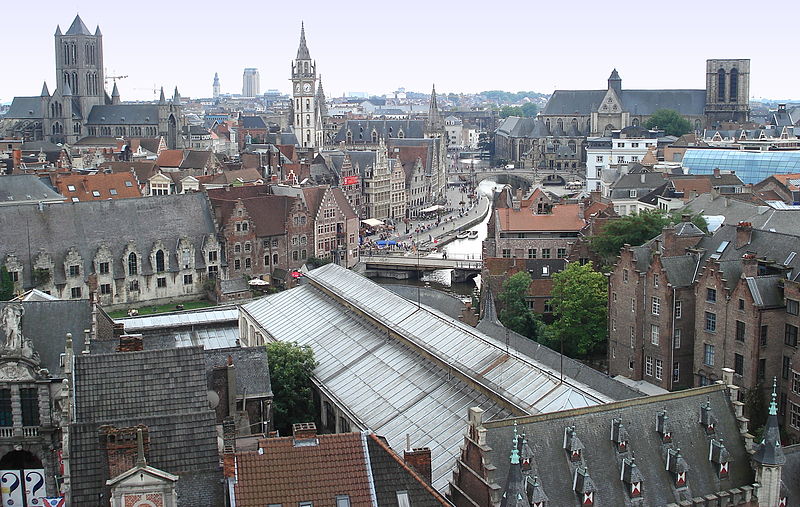The city of Ghent in the East Flanders province decided three years ago to implement the Low Emission Zone (LEZ) on 1 January 2020, to improve the air quality. This is what it means for drivers in the city.
The LEZ will apply to the zone within the city ring road, banning all polluting cars, bar a few exceptions. In general, heavily polluting vehicles will have to stay outside of the city ring road, less polluting vehicles can go in but will have to pay, and the least polluting ones can enter for free.
There are measures in place to help city residents:
The city invested over €1.2 million in the demolition premium, which makes sure that city residents who get their polluting car scrapped, will receive a premium. The city advises to use that money to invest in a less polluting car, but there is no obligation. For getting rid of polluting diesel cars, the owner receives €1,000, for petrol cars €750.
Residents of Ghent can still apply for a premium until mid-2020.
Additionally, inhabitants of the city can also make use of taxi cheques and cheaper public transport subscriptions. For now, those measures are not in place for the residents living in the boroughs, but new environmentally-friendly measures are also gradually introduced there. "We do not want two types of inhabitants of Ghent. However, as a city, we had to start somewhere. First the inner city, and then we look at what measures can be taken for the boroughs," said Tine Heyse, Ghent Alderman, reports VRT.
Visitors can buy day-passes
As there are no measures in place for people living outside of the city, anyone with a polluting car wanting to enter Ghent can buy up to eight day-passes per year. Drivers with a less polluting vehicle can still buy a temporary year pass to enter the city.
Cars entering the city will be scanned
Along the main roads leading to the city, six fixed cameras will scan all the licence plates of the cars entering the city. Through the licence plate registration, information about whether a car is polluting or not will be transferred.
By 2021, nine more fixed cameras will be added.
"I realise there will be back roads and shortcuts, which is why we also have a mobile camera ready. It is moveable, and can be used when we see that certain streets are used often by drivers with polluting wars. Fines will not be issued until 1 February. If you drive a polluting car within the city ring and you get caught, you will receive a fine of up to €150," said Heyse. "In January, there will be no fines yet, but a letter stating that from February you will be fined if you enter the city with a polluting car," she added.
What will happen with public services vehicles?
Ghent itself is almost ready to replace all polluting vehicles with more green ones. "We're not going to sell our cars, but we're going to have them scrapped," said Heyse, adding that the city will have to lead by example. "As a city, we don't want to see our polluting cars appear somewhere else in the streets or in other countries," she added.
The Ivago waste collection company has also adapted its vehicle fleet. It has 191 cars, and all but one of them has been converted to green energy. "Since a few years, the waste collector has switched to CNG, compressed natural gas," said Koen Van Caimere of Ivago, adding that the company has been working on the changeover for some time, reports VRT.
For the travellers of the Flemish Transport Company De Lijn, nothing will change. Most of the 248 buses in the three depots of De Lijn in Gentbrugge, Destelbergen and Hofstade are allowed to enter the city. The other ones can be used on the long-distance lines, like the ones from the municipality of Lokeren to the Sint-Pieters station in Ghent.
Anyone who is not sure, can check whether or not their own vehicle will still be allowed in the city of Ghent here.
Maïthé Chini
The Brussels Times

